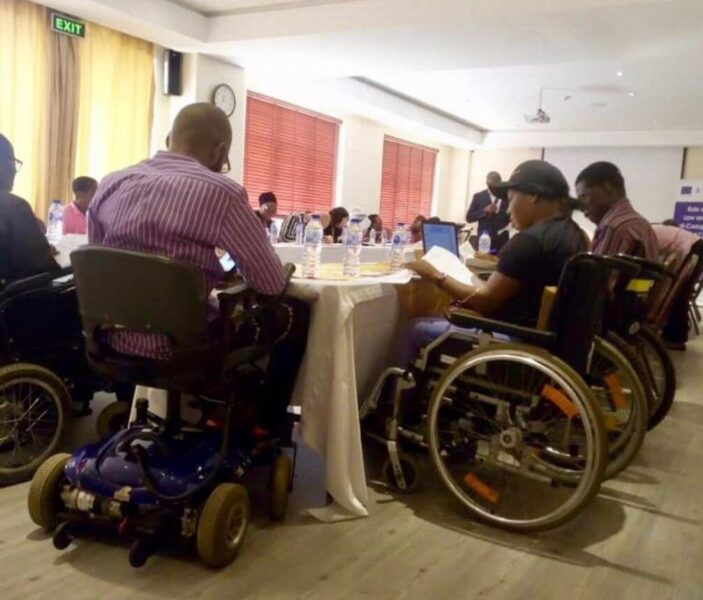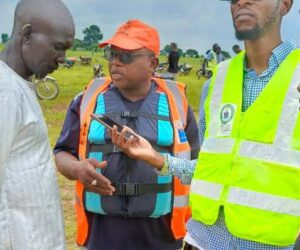As Spinal Cord Injury Awareness Month ends, the Lagos State Chapter of the Spinal Cord Injury Association of Nigeria (SCIAN) has raised concerns over poor infrastructure and inadequate support for survivors, which has continued to deepen their struggles and limit their chances of recovery.
In a statement on Tuesday, the group identified the absence of a standard rehabilitation facility as the biggest challenge facing survivors.
They noted that without specialised centres, patients are left to manage a lifelong and complex condition with little or no structured support, often leading to preventable complications.
“The road leading to the SCIAN centre in Amuwo Odofin is in terrible condition, making it extremely difficult for our members to travel to and from the centre for programmes,” said Ayininoula Enoch, Chairperson of SCIAN Lagos.
Mr Enoch appealed to the government and corporate organisations to help improve the situation and to establish a rehabilitation facility dedicated to the long-term care of people with spinal cord injuries.
Preventable causes
According to SCIAN, spinal cord injury is one of the most devastating medical conditions, often resulting in permanent paralysis.
Survivors face physical, emotional, and financial challenges that affect not only them but also their families and communities.
In Nigeria, the leading causes are linked to preventable incidents such as road traffic accidents, often due to reckless driving, speeding, poor road conditions and lack of seatbelt use.
The group added that falls, including from construction sites and other occupational hazards, as well as recreational accidents and gunshot wounds, are also major contributors.
The General Secretary of SCIAN Lagos, Austin Egeonu, stated that many of these injuries could have been avoided.
“A simple decision, like buckling up or wearing a helmet, can be the difference between a normal life and a life-changing injury,” Mr Egeonu said.
Four decades of advocacy
This September also marks 41 years of SCIAN’s work in Lagos. The association said its mission has gone beyond awareness campaigns, focusing instead on providing direct support to survivors and building a sense of belonging.
“For over four decades, we’ve been on the ground, visiting newly injured survivors in hospitals, providing a listening ear, and offering hope,” Mr Egeonu said.
“We also visit our members’ homes when they are sick, creating a vital network of care that reminds them they are not alone.”
The group said it has consistently pushed for improved accessibility in public spaces and better healthcare policies, while also running programmes to empower survivors through training and skills development.
Survivors facing stigma, financial strain
Despite these efforts, SCIAN admitted that many survivors in Lagos are not registered with the association due to fear of discrimination.
It explained that stigma remains a barrier to getting help and joining advocacy efforts.
The group added that while it offers training to help survivors acquire new skills, the high costs of managing spinal cord injuries often prevent them from putting those skills into practice.
SCIAN said living with the condition is particularly expensive and makes true economic independence difficult for many.
Call for policy changes
To address these challenges, the group called for reforms, including the creation of a dedicated rehabilitation facility, the enforcement of accessibility policies, and subsidies to reduce the financial burden on survivors.
It also stressed the need for employers to be held accountable for disregarding safety regulations that often lead to occupational injuries.
“The current healthcare system leaves survivors to navigate a lifelong condition with minimal support,” SCIAN said. “That must change if we are to reduce preventable complications and give survivors the dignity they deserve.”
Global examples
The group also urged Nigeria to learn from other countries that have built strong systems to support citizens with disabilities.
READ ALSO: FCTA denies negligence in Arise TV journalist’s death as police order discreet probe
It cited Canada’s Disability Benefit, Pension Plan Disability Benefit, and Disability Tax Credit, as well as the United States’ Social Security Disability Insurance, as examples of how structured financial support can improve quality of life for survivors.
“Ensuring everyone has a fair chance to participate and thrive in society is the fundamental principle of our call,” the group said. “By adopting similar systems, Nigeria can unlock the potential of its citizens with disabilities and foster a more equitable society.”










